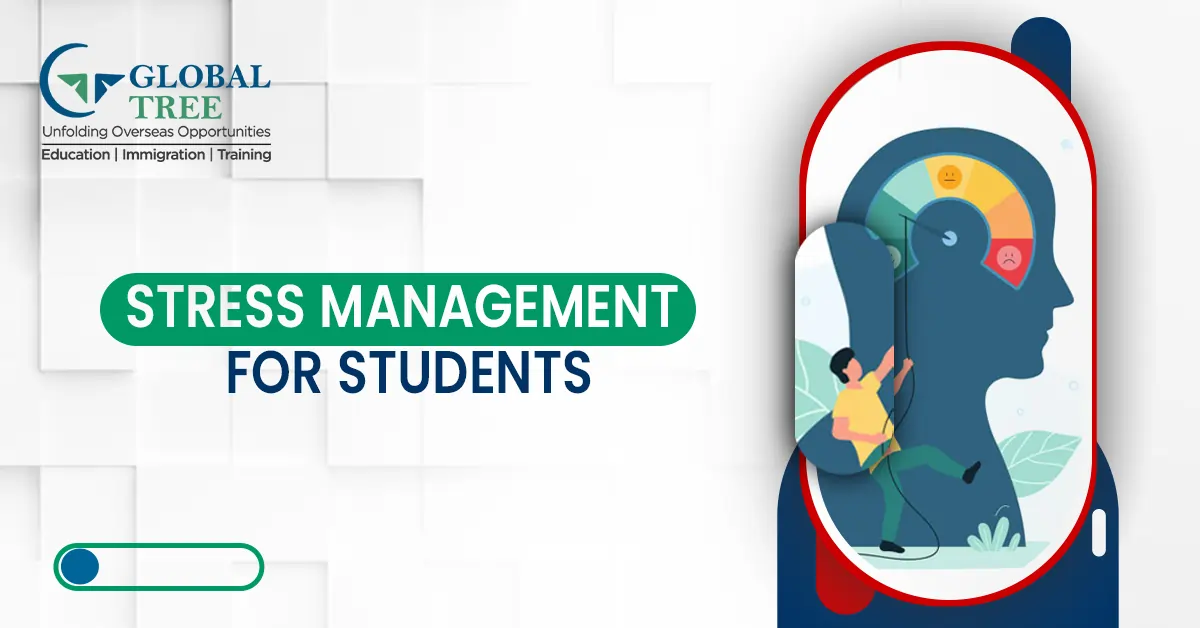4 Simple Stress Management Tips for Students

Stress Management
Student life is often described as one of the most exciting yet challenging phases of life. The quest for knowledge, new experiences, and personal growth defines these years. However, along with the excitement comes the inevitable stress that can significantly impact academic performance and overall well-being.
Understanding how to manage this stress effectively is crucial for students to thrive. In this article, we'll explore some simple yet effective strategies for managing stress, helping you navigate your academic journey with more ease and joy.
What is Stress?
Stress is a natural response to demanding or threatening situations. For students, common triggers include academic pressures, looming deadlines, social dynamics, and future uncertainties. Stress manifests in various forms: acute stress, which is short-term; episodic acute stress, which occurs frequently; and chronic stress, which persists over a long period.
Recognizing the symptoms of stress is the first step towards managing it. These symptoms can be physical, like headaches and fatigue; emotional, such as anxiety and irritability; cognitive, like difficulty concentrating; and behavioural, including changes in eating or sleeping patterns.
Exam Stress on Students : The Impact
Unmanaged stress can have profound effects on students' mental, physical, and academic health. Mentally, stress can lead to anxiety, depression, and burnout, making it hard to focus on studies. Physically, it can cause sleep problems, headaches, and a weakened immune system, making students more susceptible to illnesses.
Academically, exam stress affects concentration, memory, and motivation, leading to poorer performance and a lack of interest in school activities. Understanding these impacts emphasises the importance of effective stress management strategies.
Effective Stress Management Strategies
- One of the most crucial skills for managing stress is effective time management. Prioritising tasks, creating schedules, and avoiding procrastination can help keep stress at bay. Using planners or digital tools to organise assignments and deadlines ensures that nothing is left to the last minute.
- Adopting healthy lifestyle choices is another key aspect. A balanced diet provides the necessary nutrients for both body and mind, while regular exercise releases endorphins, the body's natural stress relievers. Ensuring adequate sleep is vital, as it allows the body to repair and rejuvenate.
- Relaxation techniques like deep breathing, meditation, and mindfulness can significantly reduce stress levels. These practices help calm the mind, improve focus, and enhance emotional well-being. Even a few minutes of mindfulness each day can make a big difference.
- Social support is equally important. Building a network of friends and family who understand and support you can provide a sense of belonging and security. Don’t hesitate to talk to someone you trust about your stress. Sometimes, simply sharing your feelings can alleviate a lot of pressure. If needed, seek professional help from school counsellors or mental health professionals.
[Suggested Read: How to Improve Emotional Intelligence?]
How to Avoid Stress & Anxiety: Developing Healthy Habits
Setting realistic goals is essential for maintaining motivation and reducing stress. Break tasks into smaller, manageable steps and celebrate small achievements along the way. This approach prevents feeling overwhelmed and keeps you focused.
Maintaining a positive attitude can also help. Practising gratitude, positive self-talk, and focusing on your strengths rather than weaknesses can shift your perspective and reduce stress. Remember, it’s okay to make mistakes; they are part of the learning process.
Staying organised can prevent unnecessary stress. Keep your study space tidy, and use planners or apps to track your assignments and deadlines. An organised environment can lead to an organised mind, making it easier to concentrate on your studies.
[Suggested Read: Examples for Strength and Weakness in Interviews]
Balancing School and Personal Life to Control Stress
Balancing academics and personal life is crucial for stress management. Downtime is not a luxury but a necessity. Schedule breaks and engage in hobbies or activities that you enjoy. This helps recharge your batteries and boosts your productivity when you return to your studies.
Setting boundaries is important. Learn to say no to activities that overextend you. While extracurricular activities are valuable, they should not overwhelm your schedule. Find a balance that allows you to participate without sacrificing your well-being.
[Read More: How to study for long hours without getting distracted?]
When to Seek Help: Stress Management
It's essential to recognize when stress becomes overwhelming and beyond self-management. Persistent feelings of sadness, hopelessness, or extreme anxiety are signals that professional help might be needed. Schools often provide resources such as counsellors and mental health professionals who are there to support you. Online resources and helplines are also available. Seeking help is a sign of strength, not weakness, and can provide the necessary support to navigate through difficult times.
Conclusion
Managing stress effectively is crucial for students to enjoy and succeed in their academic journey. By implementing the strategies discussed—such as effective time management, healthy lifestyle choices, relaxation techniques, and seeking social support—you can reduce stress, control anger and aggression and enhance your overall well-being. Remember, maintaining a balanced life is key to your success and happiness. So, take a deep breath, stay positive, and keep moving forward with confidence.



 964 260 9000
964 260 9000